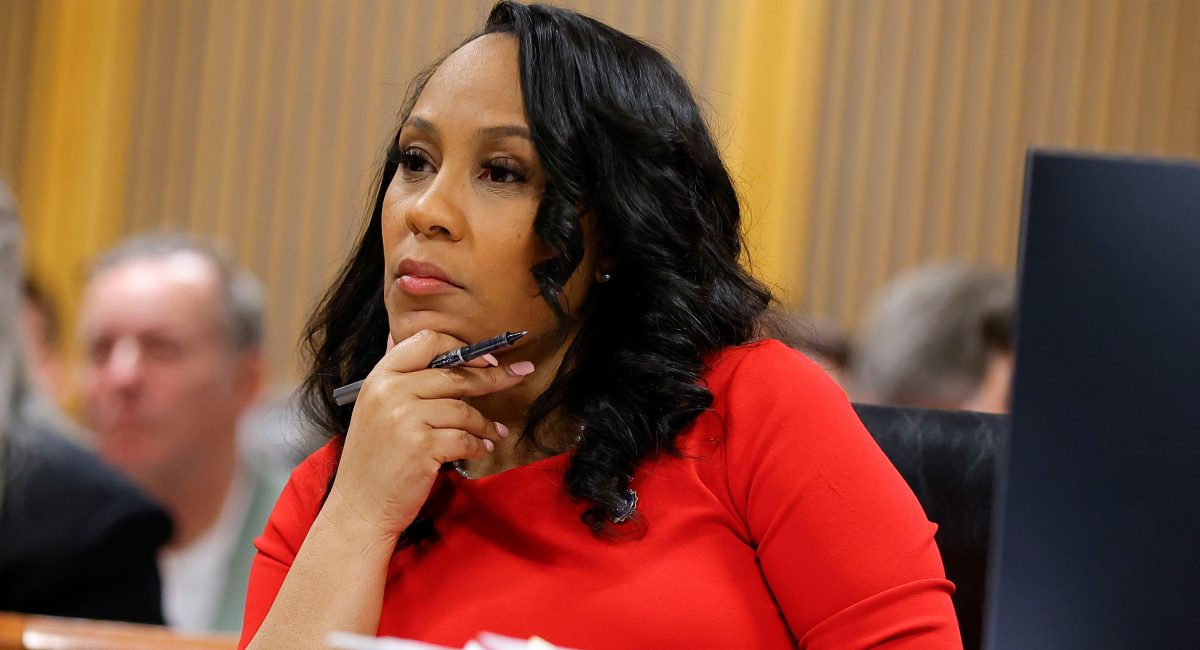Time for talk running out, President Donald Trump on Tuesday warned wavering House Republicans that their jobs were on the line in next year's elections if they failed to back a GOP bill that would overhaul Barack Obama's Affordable Care Act.
The countdown quickened toward an expected vote Thursday on legislation undoing much of the law that provided health coverage to some 20 million Americans. Trump huddled behind closed doors with rank-and-file Republicans just hours after GOP leaders unveiled changes intended to pick up votes by doling out concessions to centrists and hardliners alike.
"If we fail to get it done, fail to (meet) the promises made by all of us, including the president, then it could have a very detrimental effect to Republicans in '18 who are running for re-election," said Rep. Mike Conaway, R-Texas. "If it fails, then there will be a lot of people looking for work in 2018."
Trump's message to Republicans: "If you don't pass the bill there could be political costs," said Rep. Walter Jones, R-N.C.
The outlook for House passage remains dicey even with the revisions.
The GOP bill would scale back the role of government in the private health insurance market, and limit future federal financing for Medicaid. It would also repeal tax cuts on the wealthy that Democrats used to pay for Obama's coverage expansion. Fines enforcing the Obama-era requirement that virtually all Americans have coverage would be eliminated.
The nonpartisan Congressional Budget Office estimates that 24 million fewer people will have health insurance in 2026 under the GOP bill.
U.S. & World
Trump warned House Republicans they'd seal their political doom if they waver, with the party potentially losing majority control of the House. Still, several conservatives were steadfast in their opposition even after the session with Trump and the leadership's changes.
"The president wouldn't have been here this morning if they have the votes," said Rep. Rod Blum, R-Iowa, a member of the Freedom Caucus who complained that the GOP bill leaves too much government regulation in place.
Rep. Don Bacon, R-Neb., said he was convinced to back the bill in part by Trump's urging and the changes.
"I think a vote 'no' is a vote for Obamacare," Bacon said. "We can vote for this, and continue to make it better. I intend to vote 'yes' Thursday."
Speaker Paul Ryan, R-Wis., told reporters that if Republicans pass the legislation, "people will reward us. If we don't keep our promise, it will be very hard to manage this."
If the bill advances, prospects are uncertain in the Senate, where Republicans hold a slim majority. Six GOP senators have expressed deep misgivings including Tom Cotton of Arkansas, who said Tuesday he cannot support the House bill.
In an Associated Press interview, Senate Majority Leader Mitch McConnell, R-Ky., signaled he'd use Trump's clout to pressure unhappy Republicans in his chamber. McConnell said he's optimistic that in the end no Republican senator will want to be held responsible for "Obamacare's" survival.
"I would hate to be a Republican whose vote prevented us from keeping the commitment we've made to the American people for almost 10 years now," McConnell said.
The House GOP bill would end Obama-era subsidies based on peoples' incomes and the cost of insurance. A Medicaid expansion to 11 million more low-income people would disappear.
Instead, the bill would provide tax credits based chiefly on age to help people pay premiums. But insurers could charge older consumers five times the premiums they charge younger people instead of Obama's 3-1 limit, and would boost premiums 30 percent for those who let coverage lapse.
The revisions by House GOP leaders to round up votes come at a cost — literally. Congressional budget experts had projected that the original bill would cut federal deficits by $337 billion over a decade. But that amount is dwindling as top Republicans dole out provisions helping older and disabled people.
To address criticism that the bill would leave many older people with higher costs, GOP leaders have taken an unusual approach. They added language paving the way for the Senate, if it chooses, to make the bill's tax credit more generous for people age 50-64. Republicans said the plan sets aside $85 billion over 10 years for that purpose. And the income tax threshold for deducting medical expenses would be lowered to 5.8 percent, from the current 10 percent.
The leaders' proposals would accelerate the repeal of tax increases Obama imposed on higher earners, the medical industry and others.
On Medicaid, the changes would provide higher federal payments to help states care for older and disabled beneficiaries. States would be able to impose work requirements for able-bodied adults. But the bill would still limit future federal financing for Medicaid, seen by many state officials as a cost shift.
In a bid to cement support from upstate New Yorkers, the revisions would also stop that state from passing on over $2 billion a year in Medicaid costs to upstate counties, though it exempts Democratic-run New York City from that protection.
Democrats remain solidly opposed to the GOP repeal effort.
Rep. Chris Collins, R-N.Y., said Trump told Republicans he would campaign for them if they backed the bill.
Associated Press reporters Matthew Daly, Kevin Freking, Richard Lardner, Stephen Ohlemacher in Washington and Thomas Beaumont in Iowa contributed to this report.



